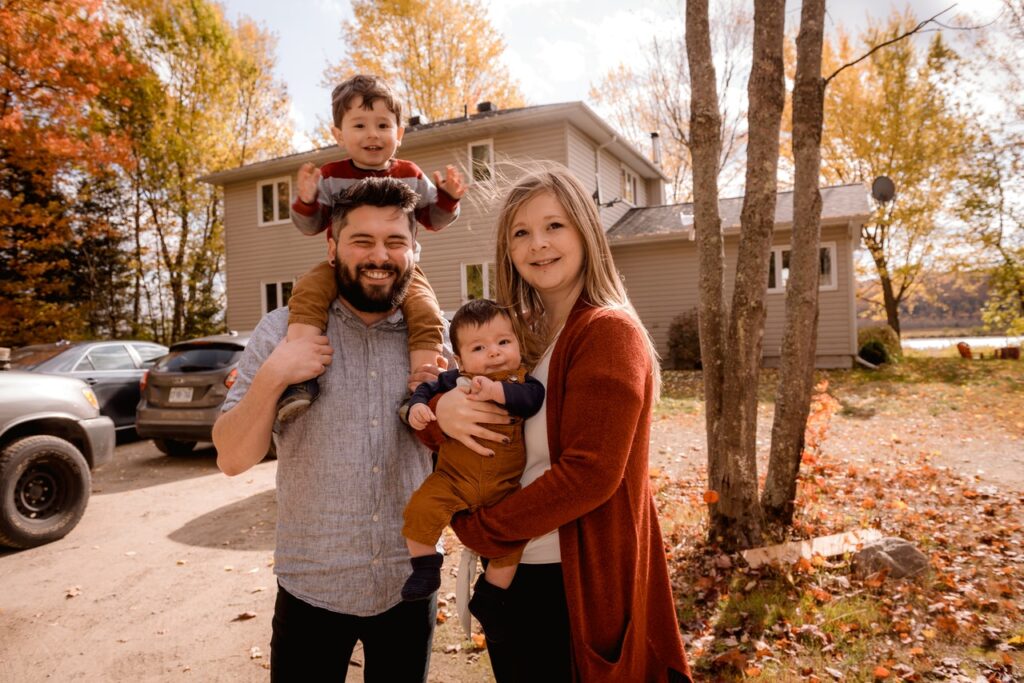Even after the pandemic, the dream of homeownership is still alive in the United States.
Over 65% of Americans own their own homes as of November 2021.
Still, owning a home is always easier said than done. Sometimes buying a home is a long-term plan.
How can you save money to buy a house within one to five years?
Take the first steps to own a home today by contacting Mares Mortgage for a consultation.
Related: How to Get a Veteran Home Loan
What is Your Plan For Buying a House?

Saving money to buy a house is not easy if you are working-class and an aspiring homeowner.
This is also true if you do it independently without the help of a mortgage lending professional.
Still, you can do it. If you have a plan, save money, and focus on your long-term strategy to own a home.
Still, successfully saving enough money to buy a home and buying the right home for your custom living needs are two different things.
You could lose everything by buying a home that is outside of your financial means to maintain it. Or you could buy a home in a housing market that depreciates its value.
You could unknowingly buy a house that is in severe disrepair. And the rehabilitative costs to fix such a home could cost a lot more than the buying price.
You should have a plan or a checklist of strategies to consider how to buy your home. After making such considerations, saving money to buy a house becomes a much more attractive goal.
So, let's talk about how to plan for homeownership before we discuss saving strategies.
Here is what you should consider.
What Kind of Home Do do You Want?
Have you thought about your current and financial needs relative to the life utility the house will provide to you?
Are you single? Are you getting married soon and plan to expand the family? Or do you have a large family and need a spacious home?
Are you relocating for a job? Is the new employment opportunity stable enough to buy a new house?
Don't buy a house for its own sake. Make a list of the square footage, amenities, and local quality of life neighborhood standards when buying a home. Research real estate markets that serve your current and future living needs.
Don't just buy any available house that meets your current budgetary needs.
Buying a house for its own sake will result in your progressively resenting the purchase over time.
How Long Will You Live in The House?

The average price of a new home in October 2021 was $478,000.
However, the overall median sales price was about $407,000.
The price you pay for a house will be relative to your financial needs. But if you are willing to pay $200,000 to $478,000 for a new home, you should think about the terms of residency.
After researching the neighborhood and local living standards, are you planning to stay there for 10, 20, or 30-years?
Are you planning to live in the home for less than a decade? You may want to consider how much you want to spend in that situation.
The toll of Physical Maintenance
A house is not going to take care of itself. And we are not just talking about calling home contractors.
As a non-renting homeowner, it will be your responsibility to inspect your property for signs of potential problems regularly.
For example, homeowners should learn how to inspect their homes for signs of mold.
Do you know how to inspect for a termite infestation?
The problem with termites is that once you notice them for the first time, the problem may be unmanageable by that time.
Large swathes of wooden infrastructure in the home could fail, collapse, and need complete replacement.
Additionally, termites do not only eat wood. Termites also eat plants, insulation materials, sheetrock, cardboard, and carpet fiber. And the infestation may occur unseen through the foundation.
The point is that you should prepare to learn the bare basics of inspecting the electrical, plumbing, walls, roof, and foundation of your home systems. Calling home contracting professionals too late will cost you a fortune.
But learning to recognize and differentiate between small issues and potential worsening problems can make a lot of financial difference.
Talk to a professional mortgage lender about how to prepare for homeownership.
How to Save for a House
The strategies you would use to efficiently save money to buy a house depend on your personal circumstances.
Here are some to consider.
What is the Fastest Way to Save Money for Homeownership? (Take it Slow)
We don't always get what we want in life when we want it. And there is nothing wrong with that. Possessing the best things in life usually requires long-term planning.
You may be better off making a three-year or five-year plan to save money in a homeownership fund than rushing out to buy a house you can't pay for now.
Bank accounts can be automated to allot funds in savings accounts. Or you can streamline your personal budget to prioritize need over want.
Consider selling your car and commuting. Stop buying brand-name consumer goods and only buy generic.
Every penny you save in a three or five-year plan gets you closer to your goal. And if you need to learn how to save more money to save for a house in the first place, rushing or looking for quick fixes now won't help matters.
Get Out of Debt
The more outstanding your personal debt, the less likely you will be able to buy the house you want or your terms.
Always pay your debts in full and on time, especially credit card debt.
Don't just pay the minimum balance. Paying the minimum balance leaves you open to paying more in interest and penalty fees.
Mortgage lenders require you to at least have a FICO score in the 700 range, depending on your debt and credit history.
Calculate how much of your salary can be dedicated to paying a mortgage. The average person can dedicate 31% of their income to paying housing costs. With zero debt, 40% of income could be used to pay for housing.
If your debt-to-income ratio is over 43%, then most mortgage lenders will reject you.
And look at it this way – save more money and get out of debt, and your credit score will reflect your creditworthiness.
How Much Down Payment is Required to Buy a $300,000 Home?
There is no standard down payment amount. Generally, you should pay a down payment equivalent to 3% to 20% of the mortgage value.
If you can pay more, you can.
The more money you pay down on a down payment, the less of a risk you will seem to the mortgage lender. Also, you will pay less in overall interest in the long term.
So, 3% of $300,000 is $9,000. And 20% of $300,000 is $60,000.
How much you pay for a down payment depends on how much money you save.
And your salary.
How Much Income Do I Need to Buy a Home?

Most finance experts believe that your mortgage should not be more than three times your salary.
So, your mortgage should not be more than $200,000 if you make $60,000 annually, for example.
However, this is just a generalized rule.
You should make enough money at a stable vocation that will allow you to pay a mortgage for decades.
But the less debt you owe and the more money you save when buying a home, the less your salary will be a sole mitigating factor.
Contact Mares Mortgage today to get help developing a plan to get the home of your dreams.









